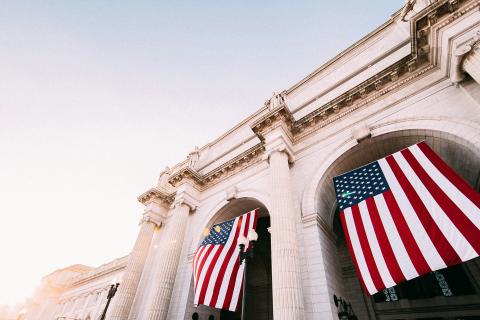
Americans who self-report symptoms of an anxiety disorder have more than tripled from 2019 to today (8% to 27%). This has resulted in a host of issues, including a “booming business” opportunity. Anyone who works with young people (as well as many people looking to make a good business decision) will confirm what numerous studies say: people are struggling.
It’s not just young people. Middle-aged men are still at the highest risk of suicide, and those numbers have continued to skyrocket, after a brief dip during the first year of Covid lockdowns.
It seems that there are many layers to this, and when things are going wrong on something like a sports team, a good coach always returns his team to the fundamentals. So what are the fundamentals to human life?
Most basically speaking: (1) an overarching sense of meaningful origin and destination, (2) healthy family relationships, (3) good friends, (4) marriage and children, (5) being a contributing member of a community, and (6) clear understanding of right and wrong.
These basic facets of human flourishing used to be contained in the traditions that were honed over a hundred thousand years and pruned for effectiveness. Of course, we believe that God’s revelation to Abraham and completed in Jesus and passed down to us through the Church is the best and most direct way of acquiring happiness. But this Tradition also builds on and purifies the traditions of human history. Even without the Gospel, there have always been basic life realities that are nearly universal as outlined above.
As Tevye states in Fiddler on the Roof, “Because of our traditions, everyone knows who he is, and what God wants from him.” We, as Tevye also says, may not even understand why traditions are the way they are. But that can be a relief so that each day one doesn’t feel the need to reinvent oneself, or consult the internet to find out what the current know-it-alls have to say based on mice research. Rather than getting so sophisticated and fancy, it’s time to return to the basics and fundamentals of what makes a meaningful life, and rebuild our appraisals on firm foundations.
An anonymous Dominican nun offers reflects on the hidden riches of the desert in the Christian life, offering timely reminders for students, teachers, and parents at the start of a new (busy) academic year.
In rural England, the closure of churches and pubs (which aren’t quite the equivalent of American bars) signal a deeper drift from communal life throughout the modern West.
In a world of “lapsed Catholics,” “lapsed Christians,” and “nones,” a new category emerges: the lapsed atheist. Is religion inevitable?


